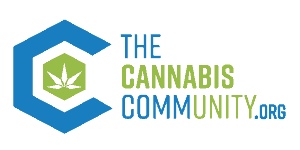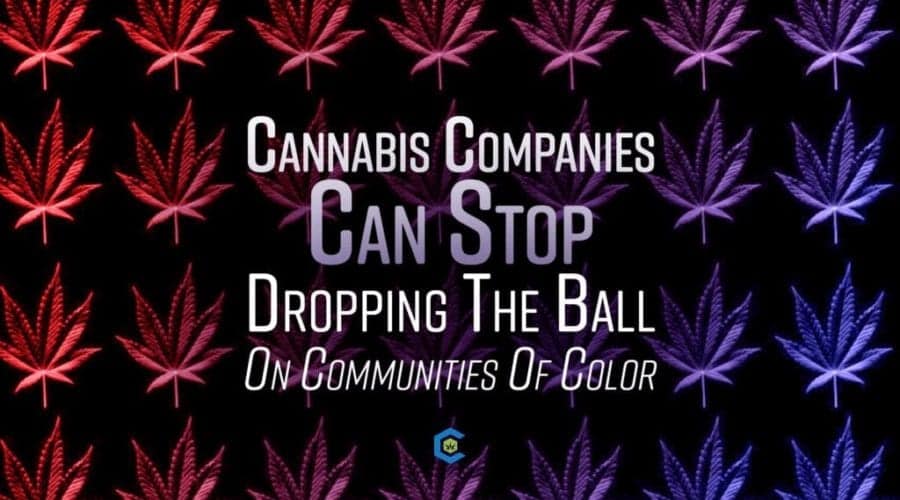Veiled from Blackness: How Cannabis Companies Can Stop Dropping the Ball on Communities of Color
While we couldn’t have planned for a global pandemic or the imploding infrastructure of systemic racism in the United States, we can agree 2020 has been one hell of a ride that isn’t quite over.
Seeing cannabis be deemed essential was one of the silver linings for the cannabis industry, although the social uprisings following the murder of George Floyd quickly faded the excitement, and pulled back the curtain on a disparity problem the industry has been ignoring for far too long. The result of these events has left an unspoken yet widely felt reality in many communities of color:
Black people don’t appear to matter as much to the cannabis industry beyond the soundbites. At least not really.
In recognition of Black Business Month, our team collaborated on highlighting some of the struggles faced by our black community members in the cannabis industry, along with some black-owned organizations that are pushing forward in spite of existing circumstances.
Amplifying Black Voices in the Community
It comes as no surprise that the industry has a history of playing on the heartstrings of Prohibition and its wrongdoings while entirely benefiting from the systemic outcome they do little to change.
There’s this call to “change the narrative” around cannabis in order to reach national legalization, but this effort falls short when choosing which narratives have been amplified and which ones have been depreciated, ignored, stonewalled, or silenced.
For too long, many black voices have been buried beneath a wave of narratives that come from those who have not been impacted by the war on drugs, or to some extent, may have even benefited from such war.
In looking for specific examples, we reached out to Kiana Hughes, owner of Elevated Education, who said, “Because the cannabis plant is so communal in nature—people of all races, age, religion, etc smoke together—some people seem to be ignorant of the systemic racism that affects black people and our relationship to legal cannabis.”
She added, “There is a false perception that cannabis is “colorblind” because the culture brings everyone together for the love of the plant. It doesn’t take long to see that that isn’t true. A quick glance at the comments on almost any post that refers to Black people reveals layers of covert and overt racism within online communities everywhere.
Any comments highlighting the racist origins of the war on drugs, higher arrest rates, or lack of black ownership in the industry are quickly met with comments about how the post is offensive, divisiveness, and racist in itself, with very little self-reflection or acknowledgment of any truth in what is being said.”

The Truth About Racial Disparities in Cannabis
If you are not Black, please try to understand that this is the reality for many people who are. Don’t believe it? Take a look at the diversity rates in cannabis alone, and decide for yourself as to whether the top movers and shakers in the industry at this time represent the entire diversity of what cannabis could be.
The general makeup of those who have the privilege to legal access, whether as a patient or an owner, is a result of a racist political system that historically criminalized cannabis to target minority communities of color with thinly veiled guises of justice, prominently referred to as The War on “Drugs.”
The rippling waves of this war have been decades of police brutality in communities of color where thousands of lives have been decimated, and where devastating effects of this war remain to this day according to a 2020 report from the American Civil Liberties Union.
The diversity rates of those who have access to legal cannabis as a medicine (or even recreational) compared to those who are still sitting in jail or prison for cannabis-related “crimes”, show a stark difference in demographic makeup.
In one example dating as far back as the year 2000, – California conducted an analysis to understand the makeup of its patient population. They found that over 61% of their patients were Caucasian, whereas Latinos, African Americans, Native Americans, Asians, Pacific Islanders, and others combined made up the remaining 39%. Black people only made up 11.8% of the total patients in comparison.
When we look at incarceration rates however, Black people are still more likely to be arrested at higher rates for marijuana possession than white people in every state, including those that have legalized marijuana.
On the ownership side, Black Americans own less than 5% of dispensaries in the nation and are barely present in company stakeholder positions of equity and ownership. Otherwise, the majority of the cannabis industry is a mostly Caucasian, male-dominated space, according to a 2017 study by Marijuana Business Daily, where 81% of people who own and run a cannabis business were white, compared to 19% of cannabis businesses nationwide that were run by all people of color, combined.
Mirage Opportunities In Cannabis
When looking at employment opportunities, management, executive, investor, and board member diversity rates; the numbers begin to dwindle even further, painting a clearer picture of who is represented in the cannabis industry, and who is simply represented for.
While legalization, affordable cannabis, and social equity are things the industry likes to highlight, it takes genuine execution to make these ideas a true reality rather than a simple marketing soundbite.
Preaching ideals of inclusion, diversity and social justice without practice is a disrespect to Black Americans and people of color who are tired of the half-hearted promises for equality. Breaking into the cannabis industry already feels like a privilege.
To explore this sentiment deeper, we asked Tony Payton Jr., Co-Founder, and Chairman of Community Wellness, a predominantly black-owned cannabis license applicant in the state of Maryland, about his thoughts on the matter.
Tony said, “When we play by the rules, we get played by the system. As a former lawmaker, I have seen the structure of systemic barriers in place that have long kept black and minority communities of color in a separate society of diminished educational opportunities, higher arrest rates for equal levels of crime, and lower family household incomes per capita.
In the year 2020, it’s time to put an end to the status quo. As humans, we should be better than to willfully ignore these realities because ignorance is no longer an excuse – it is a choice.”
He further added, “In Maryland and other states promoting minority and social equity business programs, swift action is required to award licenses in accordance with the original deadlines set. Too many states have paused, stalled, or indefinitely held off on awarding licenses due to concerns related to racial bias or the coronavirus.
And for states moving forward, regulators should thoroughly review operating agreements of applicants. They should be keen on “strawman agreements”, which are basically token applicants controlled by majority firms.”
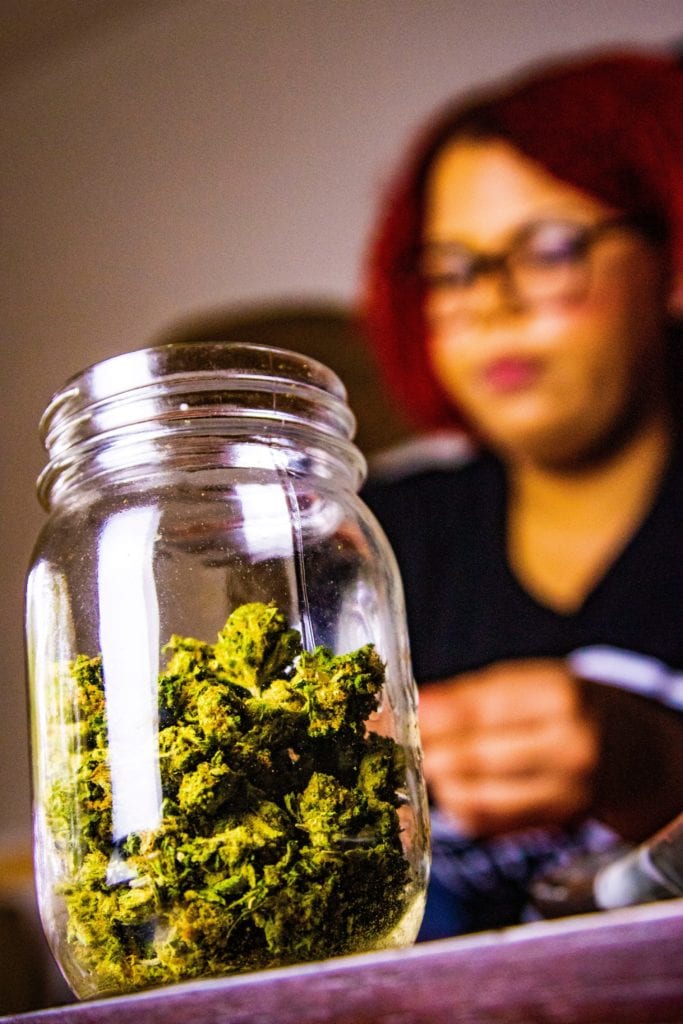
How to Infuse Inclusion with Cannabis
If the cannabis industry wants to “change the narrative” and “end the stigma” around cannabis, as we so often claim, we need to have a serious and honest look in the mirror to check our privilege.
Why? Because people are still getting raided for cannabis while CEO’s get raises, for doing the exact same thing. If cannabis is not legal for everyone, then that’s not legalization. That’s privilege.
It’s not like joining the legal industry is any easier, either. To date, black entrepreneurs struggle to join the cannabis industry due to a multitude of reasons dating back to decades of discrimination, redlining, and rent-seeking practices.
So what can we do as an industry to start fixing the problem? Here are a few ideas to start generating momentum in the right direction.
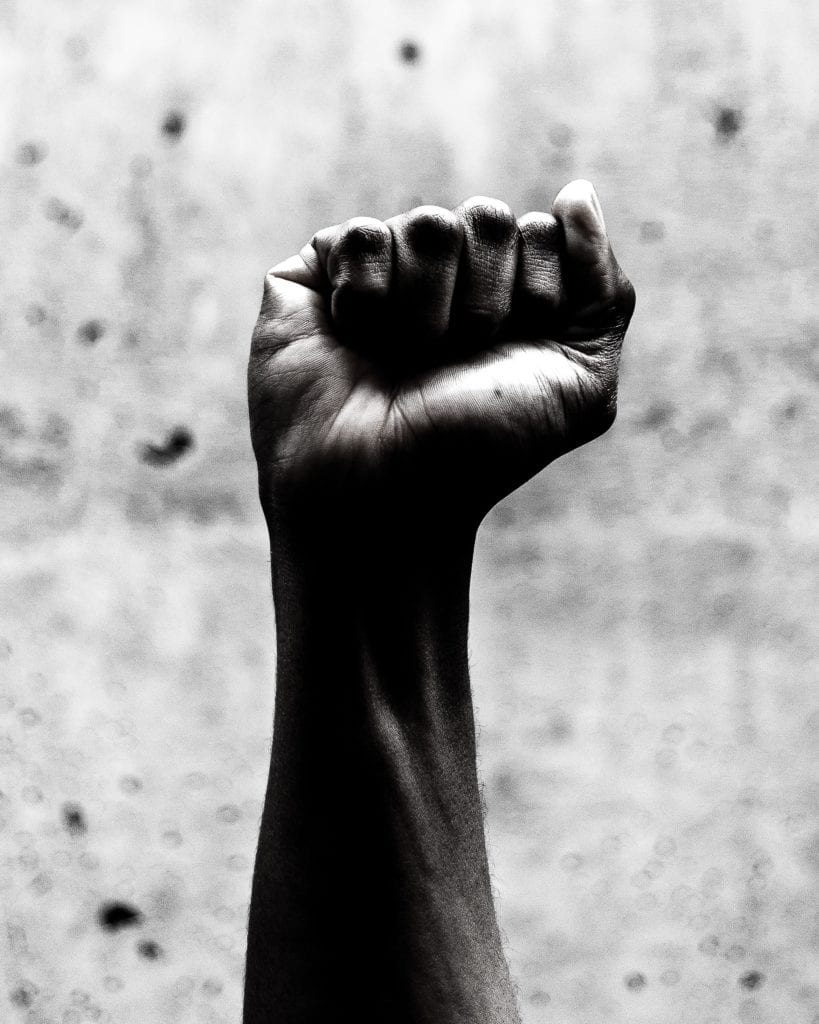
Support Black-Owned Businesses
Why is it important to support Black and minority-owned businesses? By promoting black-owned businesses, and other people of color, we can start to address the glaring problems that exist in our society as a historical result of institutionalized racism in disenfranchised communities.
Showing support is the first step to breaking the status quo and closing the gap on socioeconomic disparity. Fortunately, support for black-owned businesses has recently increased by more than 7,000% according to Yelp.
Here are some Black-Owned organizations in cannabis to consider supporting during Black Business Month, and beyond.
- Chicago NORML – Chicago NORML is a 501c3, membership-driven organization that strives specifically to educate and motivate communities of color to destigmatize and accept the cannabis plant as a vehicle for health & wellness, political, and economic empowerment.
- Supernova Women – Supernova is an organization formed by and for women of color in 2015 with the goal of utilizing our diverse talents to empower our people to become self-sufficient shareholders in the evolving cannabis economy.
- Minority Cannabis Business Association – The Minority Cannabis Business Association (MCBA) is the first 501(c)(6) not for profit business league created specifically to progress the cannabis industry by increasing diversity.
- The Hood Incubator – The Hood Incubator is committed to ending the drug war and reversing its harmful impacts on Black communities.
- Illinois Equity Staffing – A responsible HR vendor, specializing in corporate training, administration, recruiting, payroll, onboarding, handbooks, SOPs, and more, with a focus on social equity, diversity and inclusion.
- Elevated Education – Elevated Education, LLC is a woman and minority-owned firm dedicated to providing high quality, instructionally sound training and educational content geared toward minorities who are working to break into the cannabis industry.
- Simply Pure Dispensary – Simply Pure is one of Colorado’s most recognized dispensaries, known for being a politically focused dispensary, which fights for the rights of cannabis patients, veteran’s right to use cannabis for PTSD and social justice surrounding the arrest of people for possessing the plant.
Color the Executive Representation
Across many areas of the industry, the most common place one sees diversity is in the entry-level, hourly jobs that allow companies to check off a “diversity” box.
Just because dispensary staff may be Black, doesn’t mean the company that hired them values diversity. Hiring black people to just be budtenders, patient advisors, or work the front desk is a bare minimum. In 2017, only 17% of executive positions in the cannabis industry were occupied by people of color.
As a Black woman in the cannabis industry, and author of this article, this reality is frustrating, but I know many corporate leaders in cannabis are regurgitating the antiquated knowledge and behaviors from the rest of our nation’s workforce habits that keep Black people out of positions of power within company organizations.
To begin reversing the existing ethnic imbalance, cannabis companies should openly commit to finding diverse talent for their management, executive, and board-level roles, since there is so much talent eagerly waiting to be tapped.
Further, cannabis companies should take inventory of their staff and how they’re supporting the development and talent of their future leaders to widen their pool of applicants for c-suite positions.
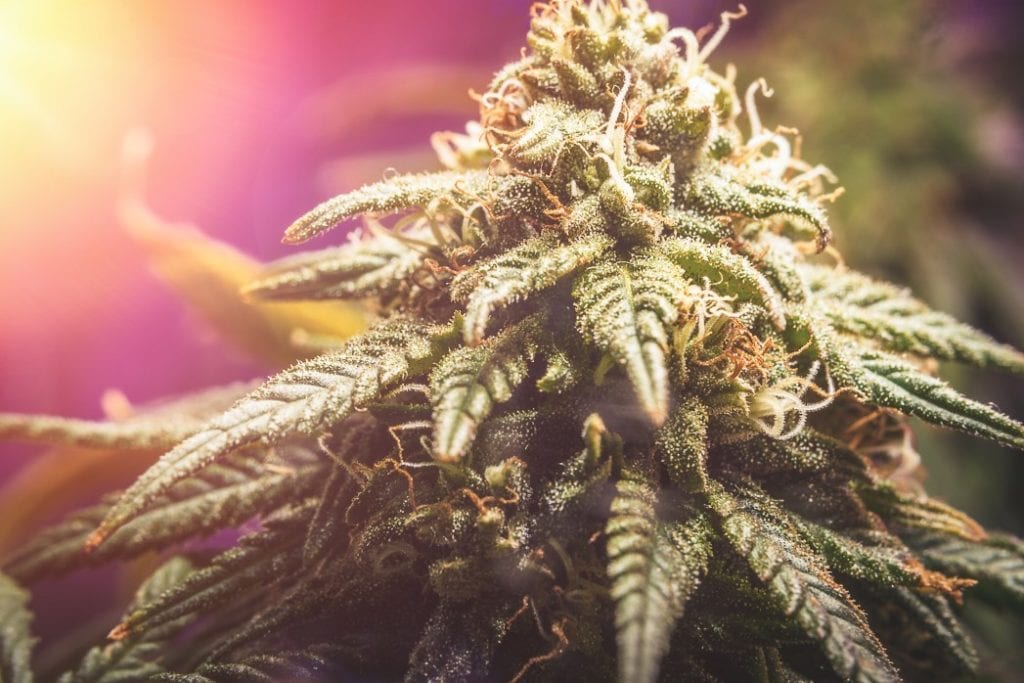
Move Beyond the Lip Service of Advocacy
When we take a step back to consider what we’re all working to achieve in the cannabis industry, one important question we should be asking is “what stigma are we out here ending, and for who?”
As the cannabis industry continues to push toward a path of legalization, organizations who speak out on the injustices should work to support black-owned organizations who have been doing the work on the frontlines of community activism and advocacy, instead of trying to take the advocacy over in a way that appears to bring a sense of white savior complex.
In other words, black communities disadvantaged by the war on drugs do not need the industry to save them. They need the industry to support them directly by stepping aside and allowing the community to lead the efforts of where they need support and how it should be delivered. And if that is still too complicated, cannabis companies should simply ask how they can help instead of assuming they already have the answers.
Some ways cannabis companies could genuinely support Black people in the cannabis industry would be to:
- Invest in their educational, mental health, and support systems
- Support legal funds for those incarcerated due to cannabis
- Buy from / Contract/ Source/ Invest in people or businesses from disproportionately impacted areas
- Participate in community youth programs to help keep people out of jail instead of working to release them after it’s already too late.
- Offer up connections, mentorship, and introductions that can open doors that have been historically closed to black people.
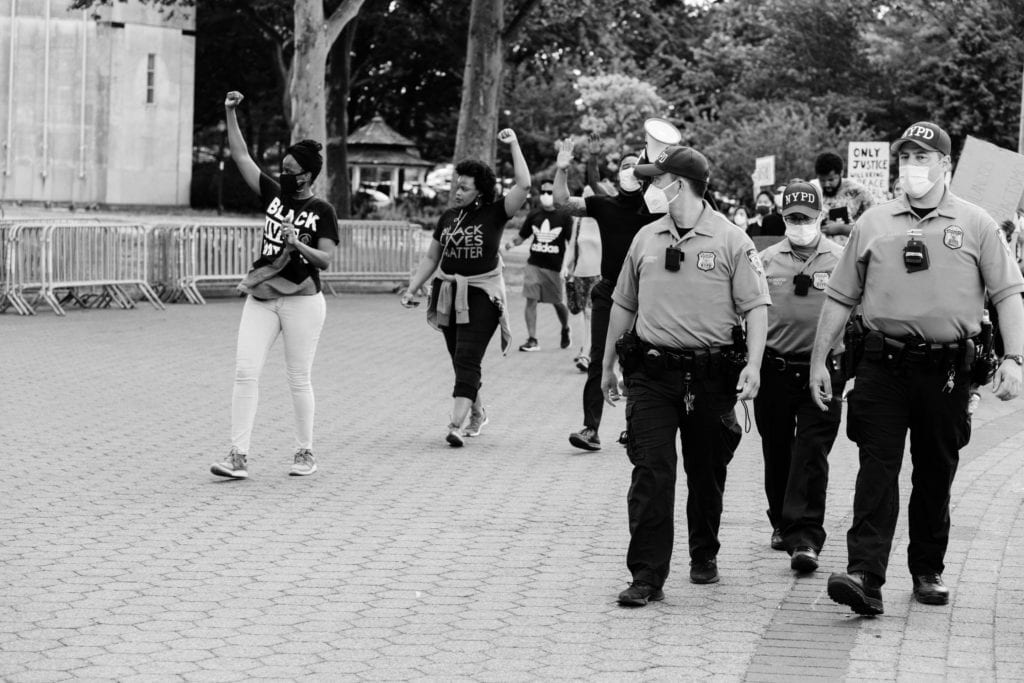
Openly Celebrate Black Holidays & Break The Silence
Thanks to the vigilant Black Lives Matter protests in early June, our world was shaken into the harmful reality of systemically racist policing in the United States. These tremors of systemic racism ultimately lined up with a spotlight on Black holidays in the industry, where we noticed cannabis businesses remaining silent on.
One notable example was the holiday of Juneteenth. It is reportedly the true Independence Day for Black people, as it celebrates the freedom of over 250,000 Black Texan slaves who were finally freed on June 19th of 1865 by executive decree.
Holidays like these which currently receive little attention deserve more acknowledgement in the cannabis industry. Black Americans helped build this country. They have suffered for it, and they have created a culture from which the country benefits from, but when the topic of economic opportunity comes about, Black Americans are swept under the rug or considered as a thought after-the-fact.
Cannabis companies who hide in silence during these days of acknowledgement inadvertently help reinforce the status quo by barely acknowledging the holiday and failing to promote the cause for celebration of freedom.
And for those who think July 4th is the symbol of freedom for all, remember that in 1776, African Americans were still slaves on this date and therefore were not entitled to their own independence.
The same goes for Martin Luther King, Jr. Day.
Instead of hiding from these holidays, cannabis companies should embrace these days to help raise awareness, promote the values and spirit of celebration, and offer notable deals and savings to customers for that day as they would for any other special holiday. They can also offer their employees time off in recognition of these holidays. And to be equal across the board, these benefits should be passed onto all levels of the organization as opposed to simply its corporate offices.
For months like August, cannabis companies should look to promote and support Black Business Month by collaborating on projects that can benefit the community.
Cannabis companies should also look to placing a more prominent focus on Black History Month during february, where they can celebrate Black-owned contributions to the world and cannabis industry, while providing deals that align with these celebrations.
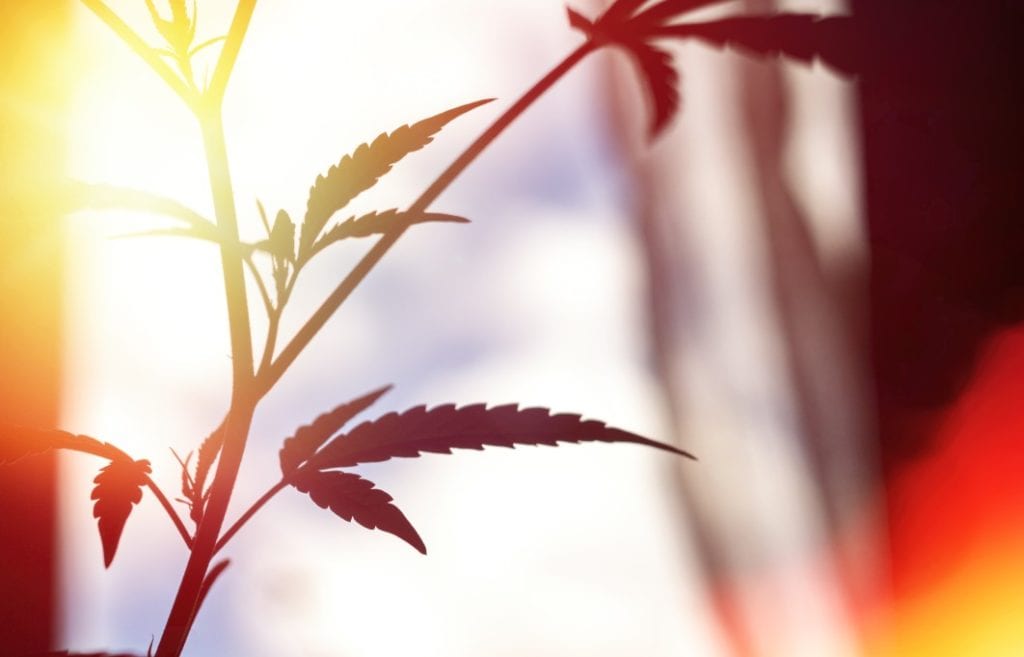
If you need more ideas, think of something only you can offer that is of value, and provide that when possible. We know traditional media has a tendency to try and divide people based on our looks, ideals, and beliefs, but always remember that we are all human first – and when we know better, we do better.
Help us create a more equitable cannabis industry, and join us in The Medical Cannabis Community!
Enjoyed this article? Consider reading…
5 Critical Problems With Illinois’ “Social Equity” in Cannabis
Top 5 Reasons Why Cannabis Employers Value Illinois Equity Staffing

